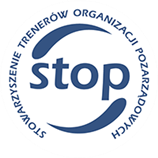Choose a course for yourself
In 2022, we are pleased to invite you to participate in courses for international groups, which we have developed as part of the Skrzydła dla STOP (Wings for STOP) project. The courses are conducted in English by our experienced trainers and supervisors, who have several years of practice working with adult learners. We direct our courses to European trainers, educators, teachers, facilitators working with groups and adult learners in a non-formal context. Before the training, we will conduct a survey of the participants’ needs.
Participation in the courses carried out under the project “Skrzydła dla STOP” is free of charge. We cover transport, accommodation and meals. A training contract will be signed with the participant.
You can find Rules of Recruitment and Participation HERE.
We also invite you to read our Educational materials in English.

The project is financed from funds received from NIW-CRSO under The Civil Society Organisations Development Programme for 2018-2030 CSODP (PROO).
More dates coming soon (including courses online).
25-29 April, 2022 – Kraków, Poland
This course is an opportunity for NGO trainers, educators and facilitators who face the challenge of designing and developing an educational cycle for one group, which is more complex and longer than two meetings. During the course, trainers and educators will learn how to design a weekly training/educational programme, what a Kolb cycle is and how to work with it. They will reflect on how adults learn and what the principles of designing a long educational cycle are.
Most of the trainers and facilitators participating in ToTs or trainers’ school learn how to design and prepare a min. 3 days long training. In many cases and in educational fields, one meeting is not enough.
Trainers and educators participating in the course will have the opportunity to learn the specifics of a long educational process compared to a 1-2 days training. During the course, we will answer strategic questions: how to design a long educational process, what are specific needs of participants in this process, what other forms of education should be designed, what a Kolbe cycle is and how adults learn. Participants will have an opportunity to learn and exchange their experiences and examples of good practice with other trainers and educators.
OUTCOMES
After completing the course, participants will be able to:
- know how to design an effective course
- understand different roles in the educational cycle: coordinator, trainer, participant
- analyze difficult group situations from different angles and perspectives
CONTENT
- specific roles in the educational cycle – coordinator, trainer, participant,
- regulations and rules to work with the group in the educational process,
- tools and methods for supporting individuals during the educational cycle: tutoring, consultations, supervision, individual action plan
- group process in an educational cycle, typical difficult situations and challenges in the educational cycle,
- Kolbe cycle, principles of adult and young adults education
27 June – 1 July, 2022 – Warszawa, Poland
Key theories in adult learning describe how adult learning differs from other educational activities and what needs to be taken into consideration when working with adults as opposed to children or youth.
Adult learners are equal to trainers in the learning process, bringing their own personal stories, experiences and expectations to any activity or training session. The trainer should be aware that his/her role is not so much to provide relevant knowledge but to free the learners’ minds from the current thinking patterns and show them new possibilities. The role of a trainer is to give opportunities to adult participants to learn by acting and experiencing.
OBJECTIVES
After completing the course, participants will be able to:
- know the principles of adult education and learning through experience,
- know methods of working with adults, practical experience of selected techniques and reflection on their usefulness at work,
- implement and adapt (also through significant modification) training techniques and methods to the needs of the groups with which the participants work,
- exchange of experiences in an international group of adult education practitioners,
- develop a critical approach to the methodology used so far through meta-level analysis and peer review.
CONTENT
- trainer competences
- how the human brain learns – Neuroscience
- active methods in adults learning – David Kolb cycle, Malcolm Knowles rules
- difficult situations during training
- designing educational activities: goals, methods
- feedback
- tools and methods in adult learning (e.g. out of class learning, drama, peer learning)
Organizational information
COST
Participation in the courses carried out under the project “Skrzydła dla STOP” is free of charge. We cover transport, accommodation and meals. A training contract will be signed with the participant. Rules of Recruitment and Participation
LANGUAGE
All courses are taught in English by our experienced trainers and supervisors, who have several years of practice working with adult learners. Language knowledge is required at the communicative level.
REGISTRATION
CLICK HERE or fill in the form below.
CONTACT US
Coordinator of international activities: Anna Skocz
email: anna.skocz@stowarzyszeniestop.pl

